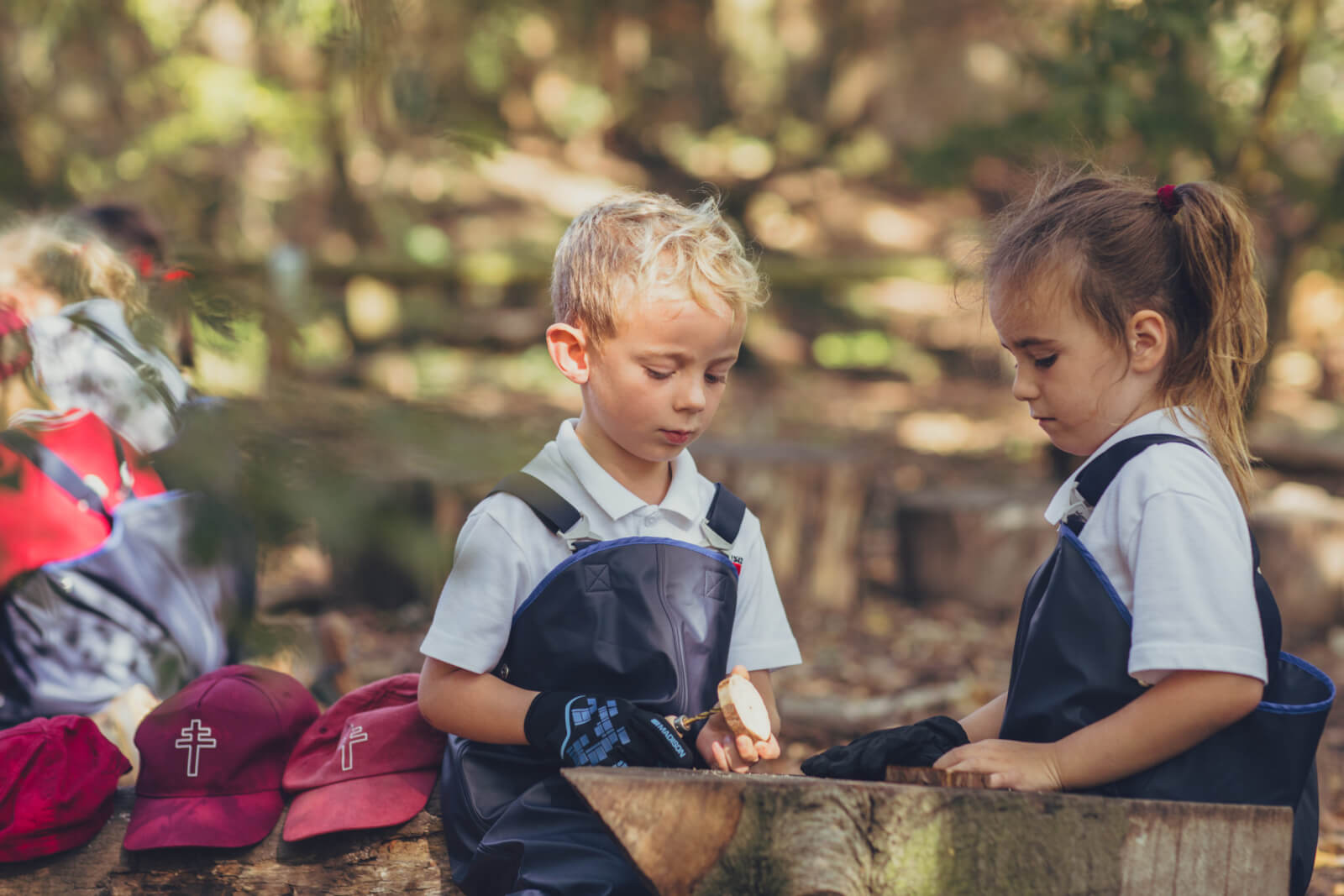Free Range Learning: Outdoor Education on New Hall’s Farm
Date Posted: Monday 08 February 2021
A recent National Trust survey revealed that children today spend half as much time playing outside as their parents did. Meanwhile, the current coronavirus crisis has bound our children to the indoors more than ever, whilst increased screen times have led to fears about sleep and eyesight problems. The educational and mental benefits of playing outdoors have been proven time and again: when students return, schools will have a responsibility to make up for lost time.
Set on 70 acres of rolling lawn and field, New Hall School in Chelmsford is extraordinarily well-placed to encourage this necessary commitment to outdoor learning. The school has been running its own on-site farm for the past two years, fit with thirty-two animals, as well as an abundance of vegetable patches, hedgerows and wide-open spaces. The particular favourites, Gwen and George the geese, are known by students as Grandma and Grandpa.

The farm is used for a variety of both curricular and co-curricular activities, with teachers taking lessons outside as much as they possibly can. This is not exclusive to subjects such as Biology and Geography, either: English pupils from the Prep Division, for example, recently used the farm when studying Charlotte’s Web, closely observing the animals as research for their own creative writing projects.
Lynne Baines, Manager of New Hall’s recently instated Nursery, makes a point of taking the children down to the farm every week. “They just love going down there, they love looking at the goats, they love talking to the animals. They all remember their names, even the little ones,” she explains. It is Lynne’s belief that children are much calmer in the fresh air, when connected with nature, and she runs the Nursery with the motto “If in doubt, get them out.”

Lynne also feels that the Nursery’s proximity to wide-open spaces has made the pandemic infinitely more manageable, with the very young children’s continued access to the gardens and to outdoor learning keeping them “in a safe bubble, immune to what’s going on in the world.”
In ordinary times, Year 1 and 2 pupils have access to Forest School. Here, they learn skills such as building dens and whittling wood, as well as how to identify different types of bird, tree and insect. Other age groups have access to the same wooded area down by the river: the nursery children like to make mud creatures, create pictures with leaves and sticks, and to play trolls on the bridge.

For the Senior Division students, helping out at the farm is always hugely oversubscribed. They volunteer their free time to help care for the animals, embracing everything from the dirtier tasks such as mucking out the pigs to the more domestic ones, like baking special animal-friendly cookies. A newly planted orchard has just appeared on site, attracting wildlife but also presenting students with another location for quiet reflection and relaxation.
Though limited at present by the closure of schools, New Hall is doing everything it can to buck the national trend of increasingly indoor-based childhoods. Any outdoor learning that can’t happen now will be more important than ever post-pandemic, as young people make up for time spent trapped inside. Schools such as New Hall will have the exciting opportunity of helping those young people reconnect with an outdoor world from which they have so long been isolated.
